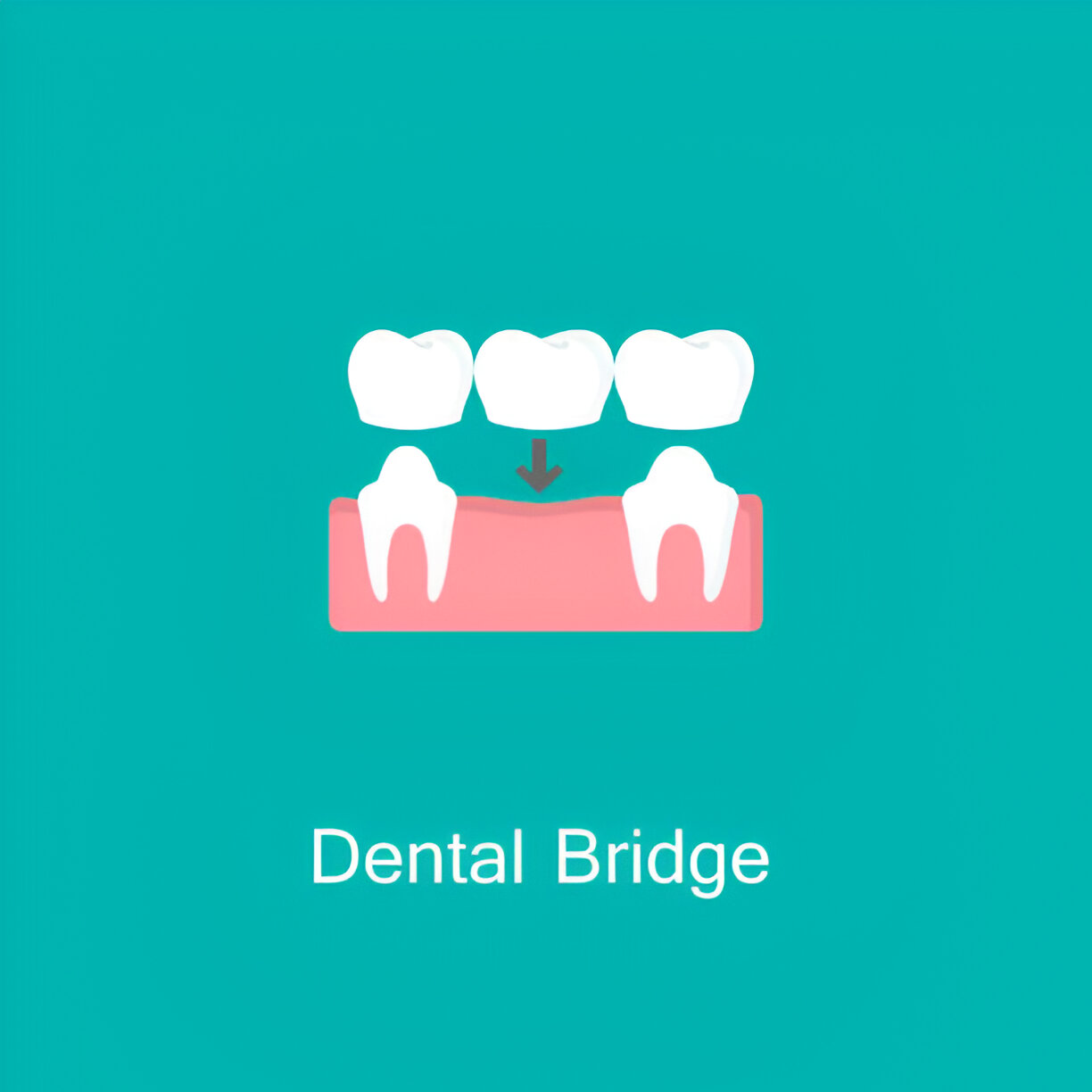Bridges & Crowns
A happy face with a beautiful smile

Best dental care for Bridges & Crowns in Guntur
Best dental care for Bridges & Crowns in Guntur. A dental bridge is a type of dental work that permanently replaces one or more missing teeth. It is made by attaching fake teeth to either natural teeth or dental implants on both sides. It helps improve chewing, keeps teeth in their proper place, and supports the shape of the face.
A dental crown is a custom-made cap that is placed over a damaged, weak, or treated tooth to restore its strength, function, and appearance. It covers the entire tooth, protecting it from further damage while improving its aesthetic appeal.
Dental crowns are caps shaped like teeth that are affixed to teeth to restore their size, shape, and appearance.
Additionally, it strengthens the tooth. The crown is the best option if the majority of the tooth is missing. A tooth can resume its normal function after a crown is placed.
WHAT IS THE NEED FOR A DENTAL CROWN?
To preserve your teeth, dental crowns are placed as caps on broken or missing teeth. Crowns for teeth are required for:
- Prevent or treat a tooth from breaking as a result of trauma or accident
- Replace a tooth that cannot be filled because it is too big.
- Have an implant cap installed.
- Repair the tooth that underwent root canal therapy.
- Cover teeth that are stained, crooked, or poorly formed.
- Need a bridge, in which case crowns are essential
A dental crown also helps to strengthen, shape, and enlarge your tooth while also enhancing its appearance. You run the risk of causing so much damage to your tooth that extraction is your only option if your dentist has advised you to get a crown and you are postponing the procedure.Furthermore, neglecting to get a dental crown may cause damage to neighboring teeth.
WHAT ARE VARIOUS TYPES OF DENTAL CROWNS?
Dental crowns are available in a range of forms and materials, including:
Metal Crowns
Metal crowns are a great option for those seeking a long-lasting and sturdy solution. The most popular crowns in these are made of gold, which adheres well to the tooth. These are even resistant to biting and strong chewing forces. Because of their strength, they endure longer and are more resilient. The sole disadvantage is that they are only good for molars because they are noticeable from a distance.
Porcelain-Fused-To-Metal
These are your best options if you want metal crowns inserted but are concerned about how they will look. Since porcelain covers the outside of the crown and metal makes up the inside of the teeth, the crown has the dual benefits of looking like natural teeth and providing strength thanks to the porcelain’s color matching. They resemble real teeth the most.
Ceramic Crown
Ceramic crowns are the best choice if you don’t want to have metal put inside your mouth but still want the strength of metal crowns. Not only is it robust, but it also disappears into your tooth color more naturally. It is the best choice for the front, back, and even the bridges and has no aesthetic concerns. This Dental Crown solves the issue of the porcelain deteriorating and the metal showing. Because the forces used when biting can wear down your teeth, they might not be an option for molars.
DO’S AND DON’TS WITH DENTAL CROWNS
DO’S
- Regular brushing, rinsing, and flossing are necessary to maintain good oral hygiene because the natural teeth are still present beneath the crown and are susceptible to decay.
- Using a mouthguard to protect your crown and prevent your teeth from wearing down is advised if you clench your teeth.
- Only have crowns fitted by a dentist with training in implant placement. The lifespan of crowns may be shortened by improper crown placement.
- To guarantee that your oral health is receiving the best care possible, do visit your dentist every six months.
Don'ts
1. Avoid using your teeth as tools as this can cause pressure and crown damage.
2. Avoid chewing pencils and biting your nails.
3. Avoid chewing hard candies or ice.
4. Steer clear of sticky food.
5. Avoid consuming food that is too hot or cold as this could lead to sensitivity.
FAQ
Q.1. What Is The Cost Of Dental Crowns?
Although dental crowns are more costly than fillings, they also have the benefit of lasting longer. We at Peoples Dental Care make sure that our clients always receive the highest caliber care at the most affordable price. For more details, Visit Peoples Dental Care.
Q2. How Long Does A Dental Crown Last?
Dental crowns can last anywhere from five to fifteen years, depending on a number of variables such as the material, case characteristics, and adherence to oral hygiene practices. Following the implantation of a dental crown, we counsel our patients to continue practicing good oral hygiene.
Q.3. Are Dental Crowns Painful?
Dentists provide a local anesthetic prior to the operation. Thus, receiving dental crowns might not be painful. But after the anesthetic wears off, it’s normal to experience gum soreness and sensitivity, which usually goes away in a few days.
4. Do One Needs A Dental Crown After RCT?
At Peoples Dental Care, the majority of root canal procedures can be finished successfully in a single day. When treating a back tooth or severe infection, a root canal specialist may schedule a follow-up appointment for two to three days.A root canal treatment entails the removal of the tooth’s pulp. Crowns are therefore typically used to give strength after the cavity has been filled. Following RCT, the tooth must have a crown placed on it.

